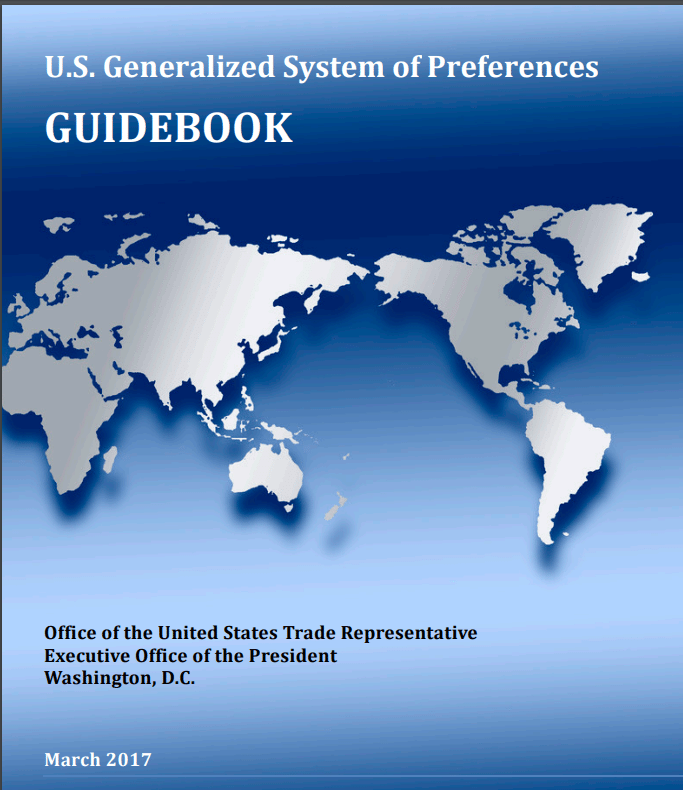GSP Renewal passed • Omnibus Spending Package Passes
President Trump just passed a $1.3 trillion Omnibus Spending Bill that will keep the government funded through the end of September.
The Omnibus Spending Bill includes the GSP Renewal. The Generalized System of Preferences is the largest and oldest U.S. trade preference program. It provides duty-free access to imports on thousands of products from 121 designated beneficiary developing countries in a manner that does not hurt U.S. producers. The program’s last authorization expired on December 31, 2017. The signed bill will extend the program through December 31, 2020, and retroactively extend benefits to covered imports that have been made since the program lapsed. The bill also makes technical changes to update the process for considering “competitive need limitations” under the program, consistent with H.R. 4068, introduced by Rep. Walorski. Information derived from waysandmeans.house.gov.

By the way, the Omnibus Spending Bill also tripled the budget for the Transportation Investments Generating Economic Recovery (TIGER) Program. For more information on what was included in the Omnibus Spending Bill, visit here.
GSP provides duty-free treatment for more than 3,500 products imported from 120 beneficiary developing countries and an additional 1,500 products imported from least-developed BDCs. According to Sandler, Travis and Rosenberg, “The combined lists include most dutiable manufactured and semi-manufactured products as well as certain agricultural, fishery, and primary industrial products that are not otherwise duty-free.”
In an Oct. 27, 2017 letter to House Ways and Means Chairman Kevin Brady, R-Texas, and Ranking Member Richard Neal, D-Mass., the lawmakers said GSP helps U.S. manufacturers and workers ‘compete in a tough global economy,’ noting that in 2016 GSP eliminated about $730 million in tariffs and about two-thirds of GSP imports were raw materials, components, and machinery. GSP benefits BDCs by providing incentives to source production in those countries, the letter said, but also benefits the U.S. by requiring compliance with eligibility criteria such as improving labor practices, protecting intellectual property rights, treating U.S. investors fairly, and opening markets to U.S. goods and services. The program also helps domestic families by lowering costs for consumer goods and food products.
To learn more about benefiting from Generalized System of Preferences (GSP), check out the GSP Guidebook created by the Office of the United States Trade Representative. For more information on which countries, qualify for GSP, click here.

